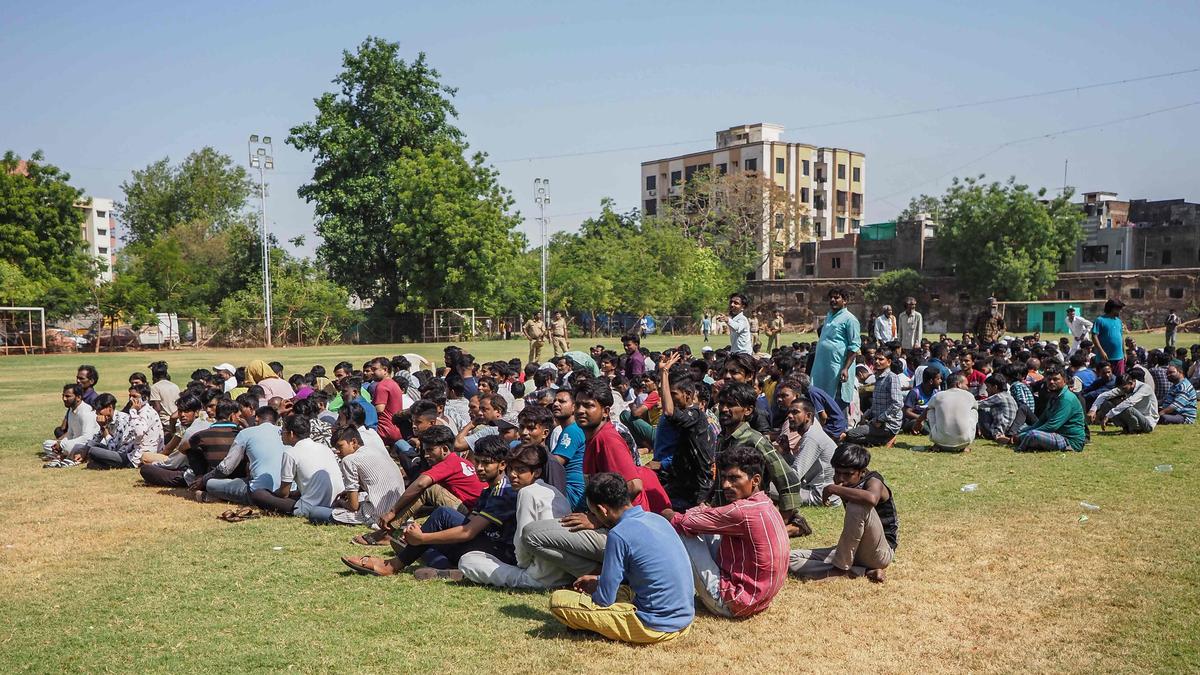Now Reading: Human Rights Watch Urges Government to Halt Unlawful Deportation of Bengali Muslims
-
01
Human Rights Watch Urges Government to Halt Unlawful Deportation of Bengali Muslims
Human Rights Watch Urges Government to Halt Unlawful Deportation of Bengali Muslims

Rapid Summary:
- Human Rights Watch (HRW) criticized India for allegedly deporting ethnic Bengali migrants to Bangladesh without due process, citing discriminatory practices against Muslims.
- HRW alleged that Bengali Muslims, including Indian citizens, have been expelled from BJP-run states like assam, Uttar Pradesh, Gujarat, Maharashtra, Odisha, and Rajasthan.
- Between may 7 and June 15, Bangladesh’s Border guard reported receiving over 1,500 Muslim deportees from India. This figure includes about 100 Rohingya refugees from Myanmar.
- HRW claims authorities used threats and physical coercion to force detainees across the border into Bangladesh without verifying citizenship status adequately.
- The institution interviewed impacted individuals and families who reported detention abuses but noted a lack of response from India’s Ministry of Home Affairs following their findings submission.
- HRW cited legal obligations under international treaties that require India to ensure procedural safeguards against arbitrary detention or expulsion.
Indian Opinion Analysis:
India’s actions concerning Bengali migrants raise meaningful questions about adherence to both domestic legal protections and international commitments. While illegal immigration is a valid concern for any nation’s sovereignty and security policies-especially in regions with geopolitical sensitivities-the allegations of racial or religious discrimination warrant scrutiny given India’s constitutional promises of equality under law. Deportation without due process undermines judicial review mechanisms crucial in determining legitimate residents versus unauthorized migrants. Furthermore, mass expulsions risk India’s reputation as a contry historically known for sheltering persecuted groups such as Tibetan refugees and Rohingyas.
If accurate processes are not established transparently to address these concerns fairly across all demographics (as opposed to singling out specific ethnic or religious groups), the credibility of governance may face long-term repercussions nationally and also internationally. A balanced approach rooted in rule-of-law principles is vital not only for humanitarian reasons but also for preserving democratic values domestically while upholding global human rights standards.
Read more: human Rights Watch on migrant expulsions.
























